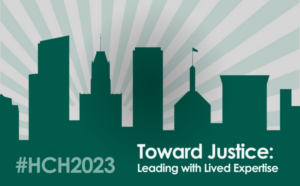Our organization’s street outreach program comprises case managers (many of whom are social workers), physicians (psychiatry, internal medicine, and emergency medicine), interns (including social work and public health), students (including medicine, undergraduate, and social work), residents (internal medicine, family medicine, triple board), and people with lived experience with homelessness and intersectional concerns (not as discrete from these other constituent groups). Within the last year, we have seen a significant upsurge in the number of people who are talking with us about their use of fentanyl, crystal meth, and pressed pills, among other substances. This has led us as a program to deepen our thinking about how to best support and advocate for these individuals in the manner of their choosing. Most fundamentally, these conversations have underscored the deep connection between individuals’ use of substances and their experiences of trauma, marginalization, and disaffection. We have aimed to center this lived expertise both in how we talk about substance use with those we meet on outreach and those learners with whom we do outreach. We have also utilized it to guide our resourcing and networking, including by bolstering our connections with local peer-led harm reduction initiatives, the buprenorphine hotline, and the state’s comprehensive toxicology pilot.
We have continued to reckon with the burden of stigma placed on people who use drugs, pervasively from outside and quite often from within the homeless service provider network and homeless community itself. We follow the work of the Vancouver Area Network of Drug Users and other drug user activist organizations, but do not have this resource locally.
Speakers: Maureen Sumner: House of Hope; Megan Smith: House of Hope
Presentation Materials:


